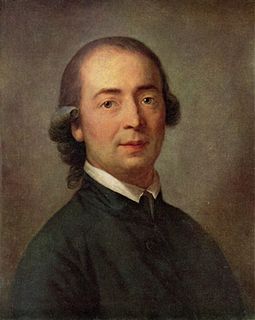A Quote by E. O. Wilson
'The Creation' presents an argument for saving biological diversity on Earth. Most of the book is for as broad an audience as possible.
Related Quotes
For much of history it was possible to believe that the great diversity of life on Earth was a fixed creation, that the living world had never changed. But when the first stirrings of industry demanded that fuel be dug from the earth and hillsides be leveled for roads and railways, the Earth's true past was dug up in abundance.
For much of history it was possible to believe that the great diversity of life on Earth was a fixed creation, that the living world had never changed. But when the first stirrings of industry demanded that fuel be dug from the earth and hillsides be leveled for roads and railways, the Earths true past was dug up in abundance.
When we talk about the environment, about creation, my thoughts turn to the first pages of the Bible, the Book of Genesis, which states that God placed man and woman on earth to cultivate and care for it. And the question comes to my mind: What does cultivating and caring for the earth mean? Are we truly cultivating and caring for creation? Or are we exploiting and neglecting it?
So says the most ancient book of the Earth; thus it is written on its leaves of marble, lime, sand, slate, and clay: ... that our Earth has fashioned itself, from its chaos of substances and powers, through the animating warmth of the creative spirit, to a peculiar and original whole, by a series of preparatory revolutions, till at last the crown of its creation, the exquisite and tender creature man, was enabled to appear.
I don't like the idea of teaching religion in schools, and creation is not my thing, but that's a trivial point compared to saving the creation. I'd much rather have half of the people in the country be creationists and work really hard to save the creation than have everybody be evolutionists and be destroying the planet.
It is essential for evolution to become the central core of any educational system, because it is evolution, in the broad sense, that links inorganic nature with life, and the stars with the earth, and matter with mind, and animals with man. Human history is a continuation of biological evolution in a different form.
Watching a scene from a film in slow motion is possible, but there’s an unreal air to it; reading a passage from a book slowly does nothing to rob the words of their power. A film presents images; a book creates images inside the reader, with the reader’s active participation. Books are good for your brain.



































